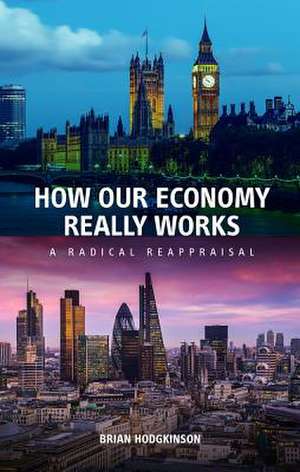How Our Economy Really Works
Autor Brian Hodgkinsonen Limba Engleză Paperback – aug 2019
Preț: 113.98 lei
Nou
Puncte Express: 171
Preț estimativ în valută:
21.81€ • 22.69$ • 18.01£
21.81€ • 22.69$ • 18.01£
Carte indisponibilă temporar
Doresc să fiu notificat când acest titlu va fi disponibil:
Se trimite...
Preluare comenzi: 021 569.72.76
Specificații
ISBN-13: 9780856835292
ISBN-10: 0856835293
Pagini: 112
Dimensiuni: 135 x 211 x 10 mm
Greutate: 0.12 kg
Editura: SHEPHEARD-WALWYN PUBLISHERS
ISBN-10: 0856835293
Pagini: 112
Dimensiuni: 135 x 211 x 10 mm
Greutate: 0.12 kg
Editura: SHEPHEARD-WALWYN PUBLISHERS
Notă biografică
Brian Hodgkinson qualified as a chartered accountant in the City of London, then won a scholarship to Oxford where he took a first in Philosophy, Politics and Economics and won the George Webb Medley Prize in Economics. Subsequently he taught Philosophy in the Social Studies School at Sussex University, before switching to teaching Economics in Sixth Forms. As the founder editor of British Economy Survey, he kept in touch with applied economics and questions of public policy. He is the author of A New Model of the Economy, The Advancement of Civilisation in the Western World (3 volumes) and several other books.
Descriere
This book argues that deeply embedded systems, which have generally been established for a very long time, require fundamental reform. They are principally threefold: the taxation system, the land tenure system, and the banking system. All three require root and branch reform.
